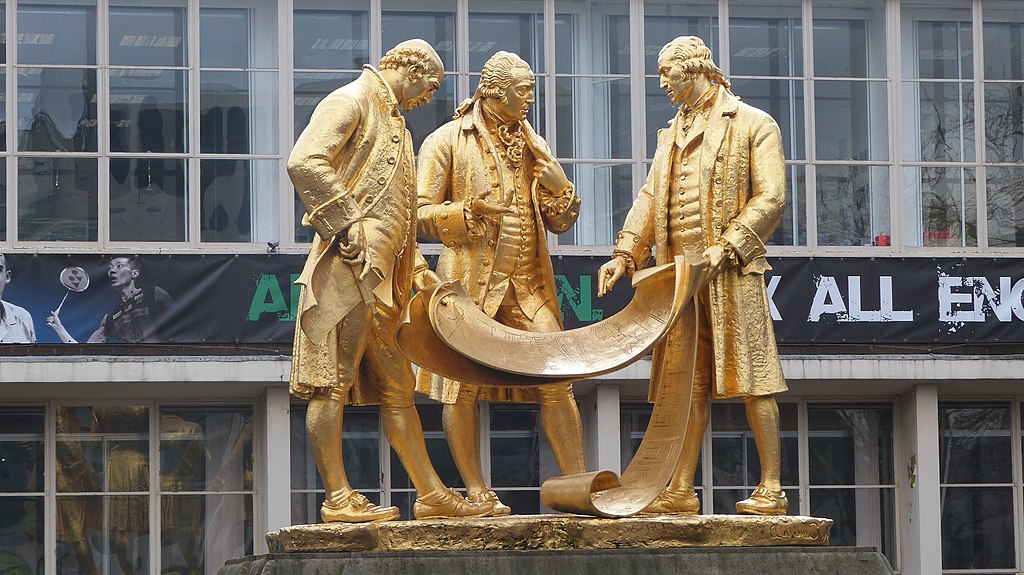
By Anita Lateano
Research Fellow, Birmingham Business School, University of Birmingham
First, we must look at why colonialism is still an issue in today’s universities. Universities are rooted in colonialism. At the height of the British empire, over a quarter of the world’s land mass was covered by British rule. Much of what was taught in British universities at the time was in a bid to justify colonising the land of other countries.
From the content that is taught and assessed within universities to the financial model and HR policies, we can trace many aspects of today’s higher education back to colonial ideology. When, for example, in 2020/21 just 160 out of a total of 22,855 UK professors are Black, or the fact that the ‘Attainment Gap’ is a well-known issue across the sector, in that white students are much more likely to achieve a First or 2.1 degree than BME students, it’s not hard to see how the historical legacies of colonialism could be running much deeper than what’s taught on the curriculum and into the structures of our universities.
But how can we look to bring our higher education system to today’s standards of equality? This is what decolonisation looks to achieve.
Why decolonisation?
George Floyd’s death brought forward the urgency of the demand. Within societies, communities and institutions, there was a call to address the systemic power imbalances within our society – and universities started the enquiry into how our education system plays a massive part in that.
Within the university system, the events of May 2020 built on previous demands from students in both South Africa and the UK, that ‘Rhodes Must Fall’, a call to remove statues of Cecil Rhodes, a British imperialist, and coloniser of South Africa from university campuses. This had ignited the demand to ‘decolonise the university’, a request brought on from students across the globe to fully interrogate, understand, and dismantle the ways our education system, which should be built for all, still practised colonial ideology.
However, decolonialisation isn’t without opposition. Many lecturers argue that through decolonisation, you are removing what are known as the ‘male, pale and stale’ voices. However, that isn’t what decolonisation is. I’d like to argue that through the process, it’s about including more voices, more opinions, differing world views, to ensure no voices are excluded. In a world that is increasingly polarised, the decolonial agenda wants to ensure a space for all voices to be heard, and yes, this does include the ‘male, pale and stale’ voices too. It’s not about sidelining the views of people we don’t want to hear from, it’s about allowing space for alternative worldviews, to give us a more well-rounded education.
How can we decolonise?
The process isn’t easy, it isn’t quick, and there’s no end point. But the process is one that is full of hope. In June 2020, a fifth of all UK universities had committed to a programme of change to ‘decolonise’ their curriculum.
At Birmingham Business School, we have committed to a three-year decolonisation project to begin to understand how we can decolonise a Business School. The task is huge, but here is where we’ve started:
- Understand your own positionality
A big part of the decolonisation process is being reflexive on our own practices and understanding our positionality, and the context of where we’re starting from. Begin to question the “universal truths” that you base your assumptions on, research the history of the theories you’re engaging with, start to notice your unconscious biases, and interrogate where they came from. This is all part of the process.
- Deep listening
Decolonisation is about talking, it’s about speaking with one another, raising awareness, bringing others with you on the journey, from wherever they are starting from. However, as important as talking about it is, it doesn’t come close to the importance of listening. Deep listening. Decolonisation is all about understanding other views, discussing them, understanding each other’s perspectives and respecting that. Talking is important, but listening will always be where change happens.
- Get comfortable with being uncomfortable
The saying goes, it’s a marathon, not a sprint, and this couldn’t be more true for the process of decolonisation. It will be difficult, it will be confronting, it will be challenging, but this is part of the process. Get comfortable with being uncomfortable. Get comfortable with challenging the mainstream narrative. Get comfortable with getting things wrong. Only in the discomfort, can we begin to grow.
If you are interested in finding out more, you can follow the progress of the Birmingham Business School Decolonisation Project here.
- Find out more about Anita Lateano
- Find out more about the Birmingham Business School Decolonisation Project
- Back to Social Sciences Birmingham
The views and opinions expressed in this article are those of the author and do not necessarily reflect the official policy or position of the University of Birmingham.
